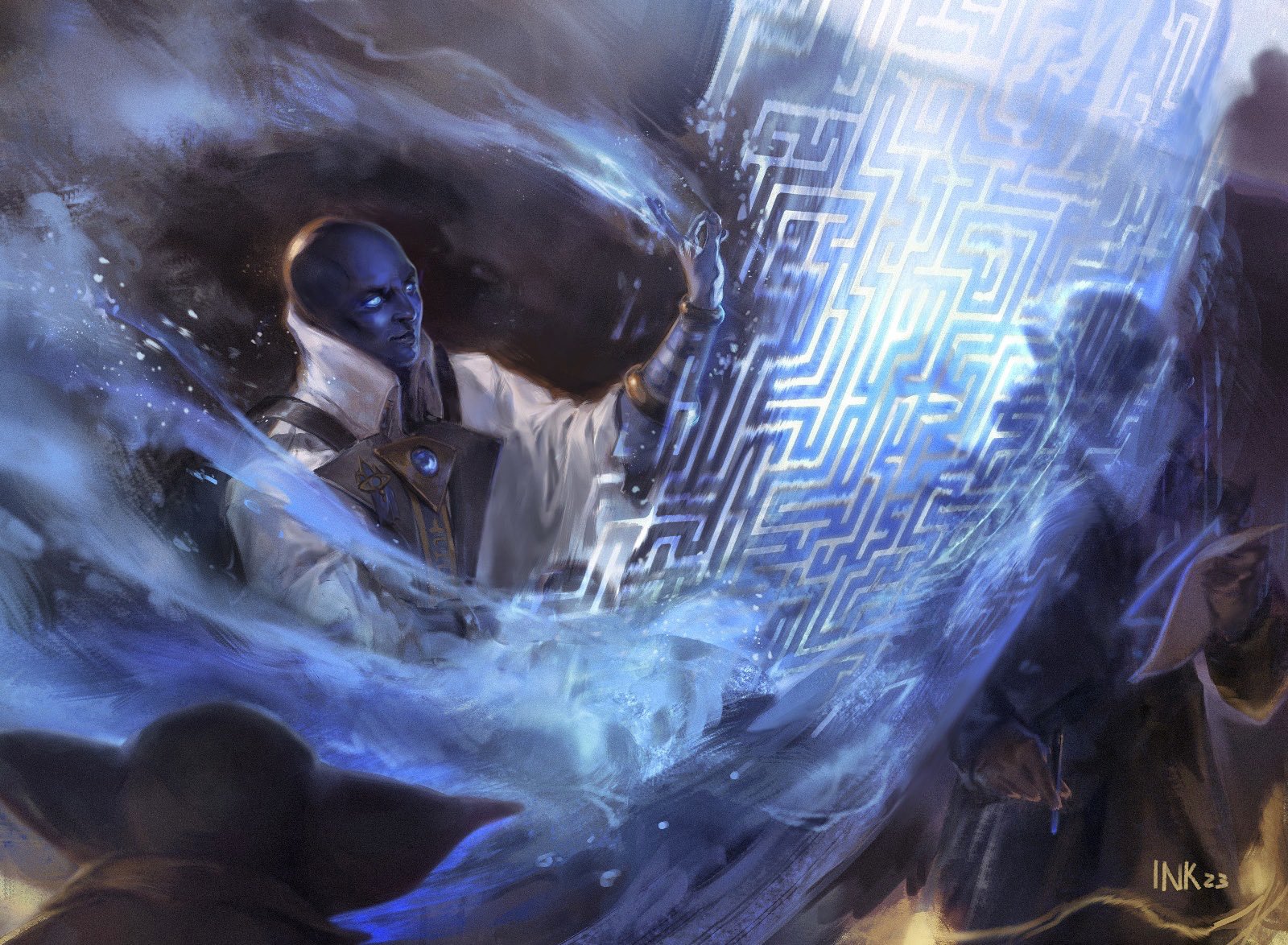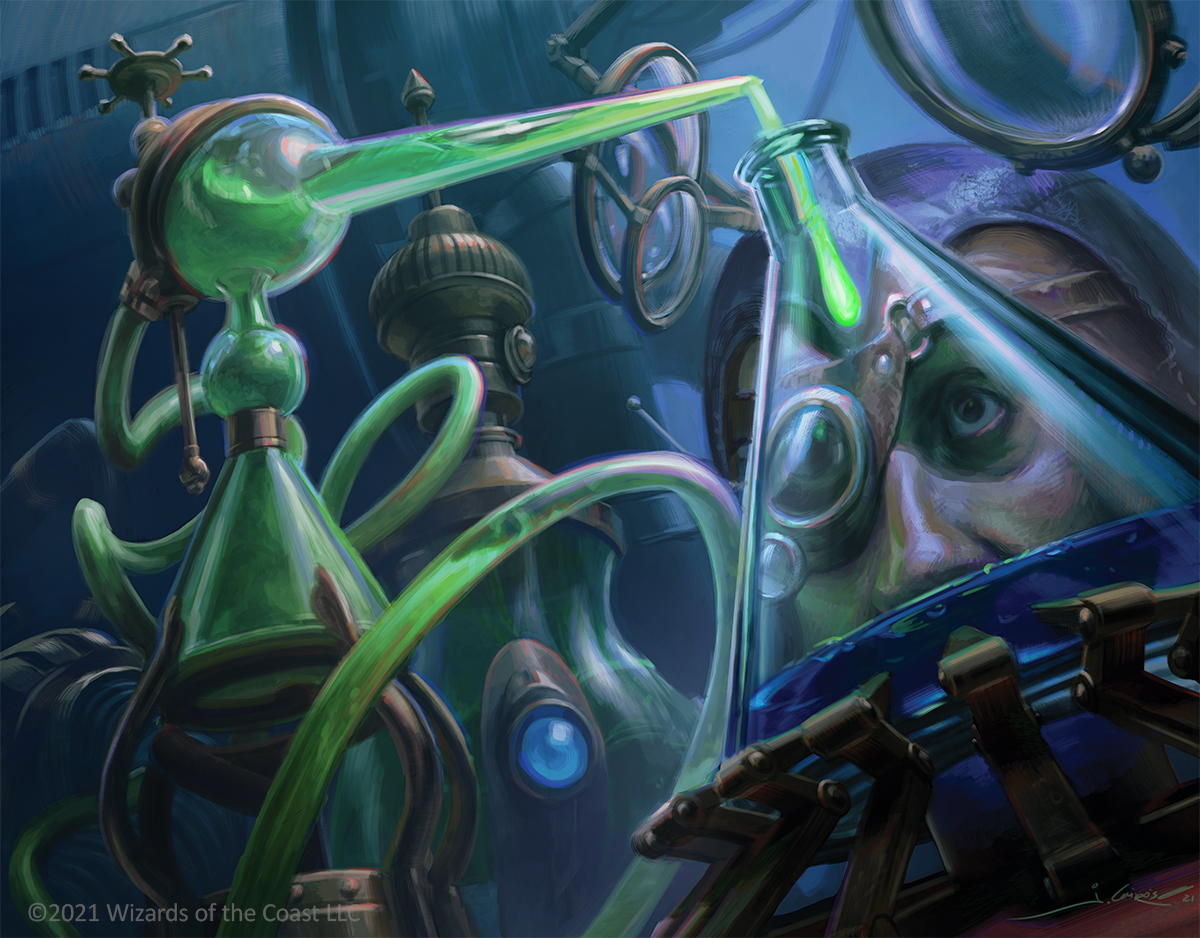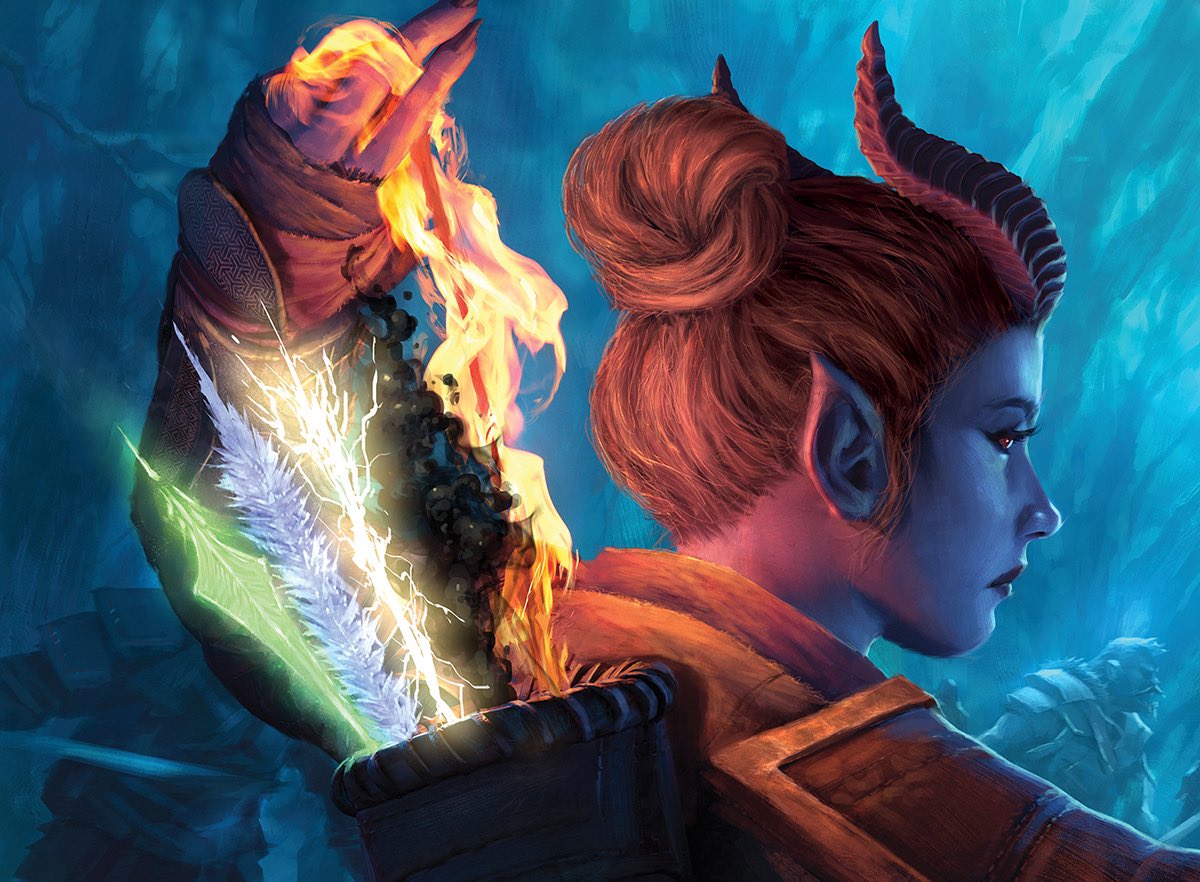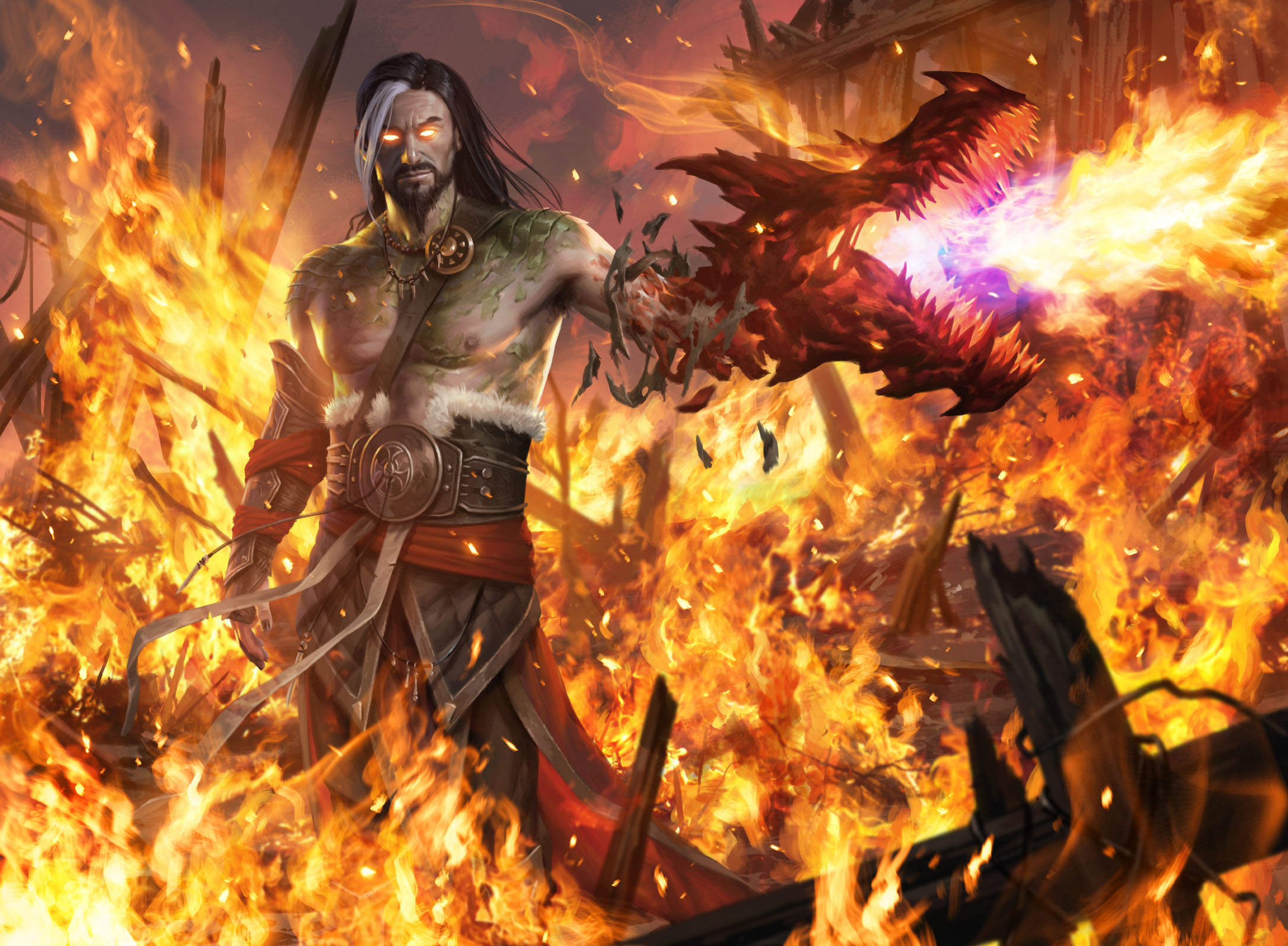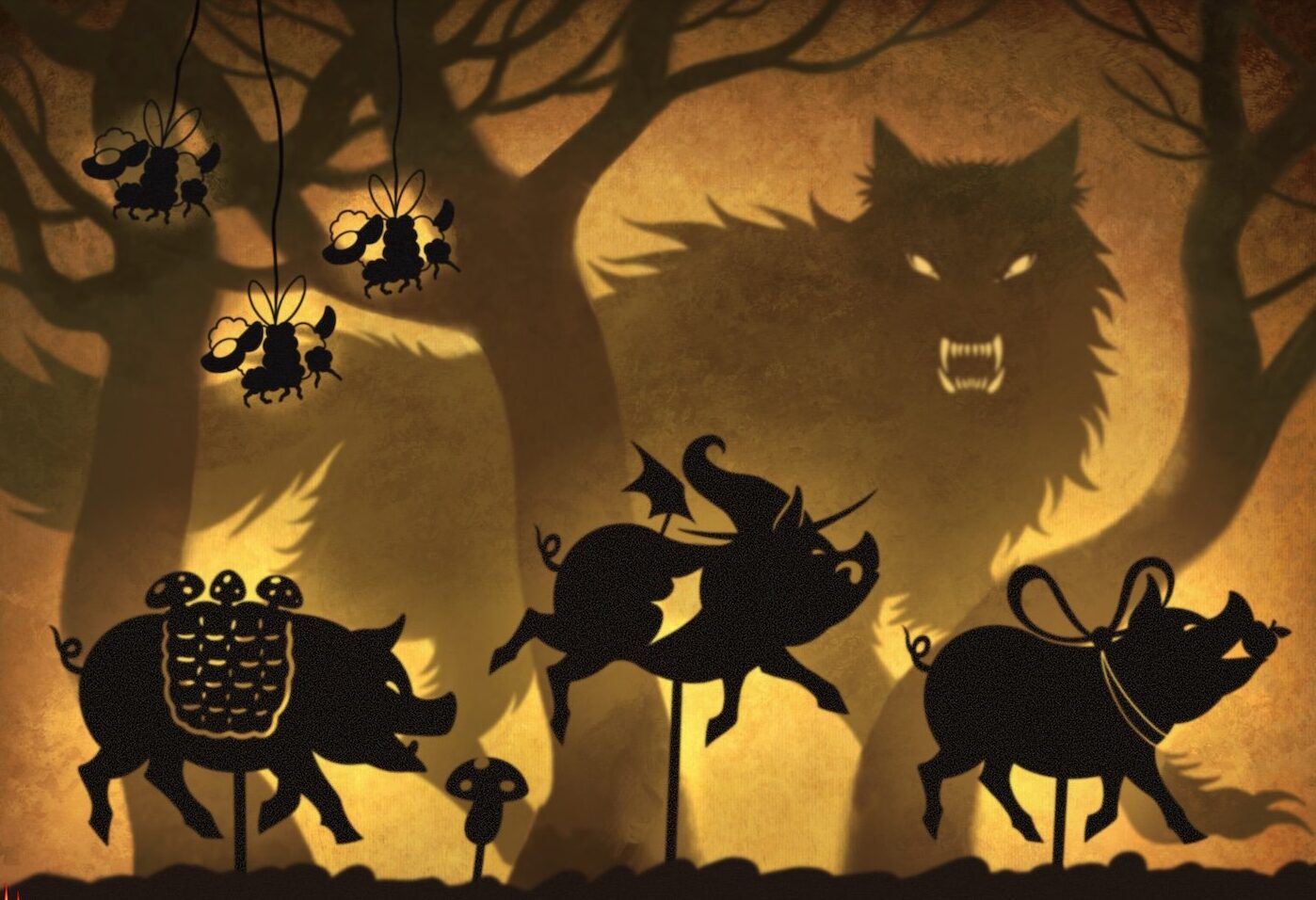Brew Like a Game Designer: Alchemy in Commander Part 1: Memory Issues
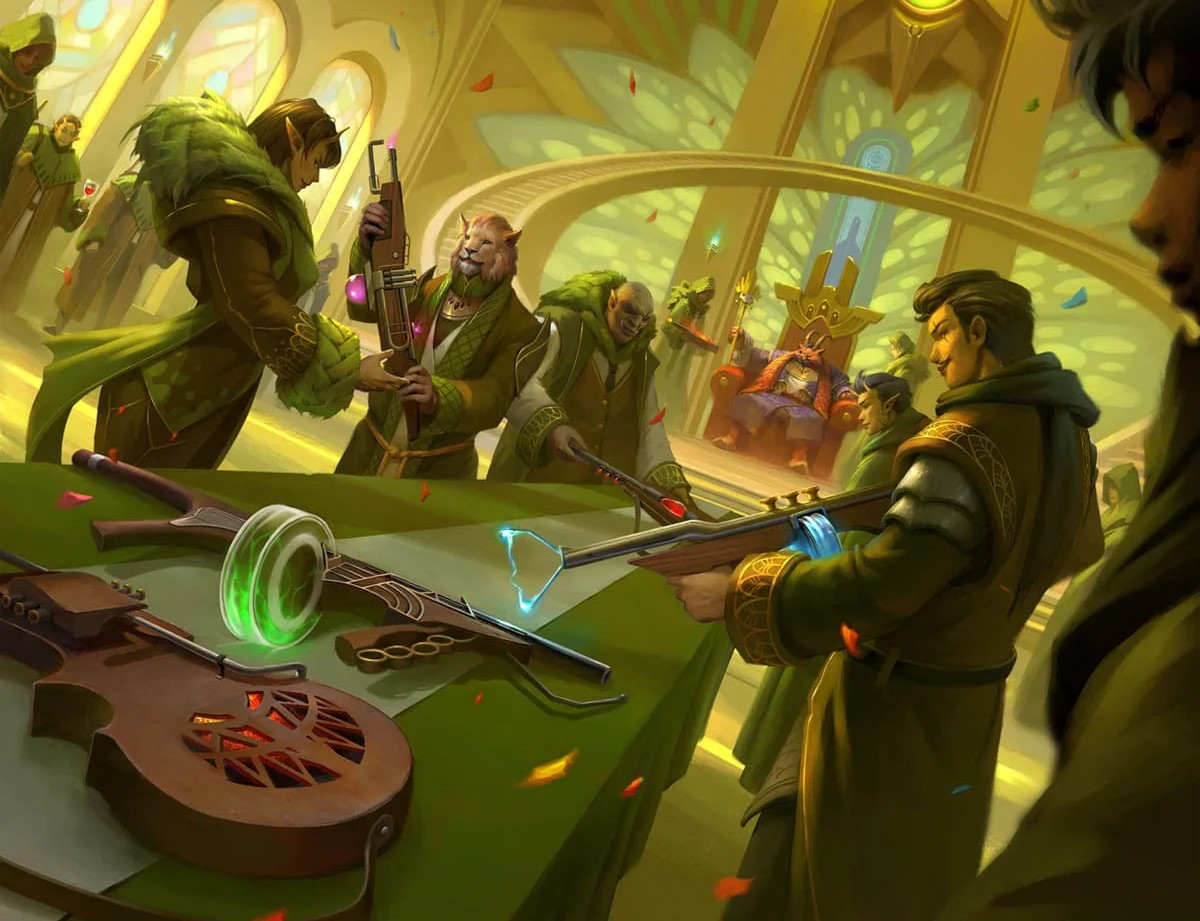
(Arming Gala | Art by Fajareka Setiawan)
A.K.A. "Good Goose, Bad Pig"
Welcome back to Brew Like a Game Designer, where we use game design principles to make our decks more fun. Today's article is a bit of a thought experiment.
In recent years, Magic: The Gathering has published several sets of "Alchemy" cards exclusive to online games played on the Arena platform. These cards feature mechanics that don't work properly in traditional paper Magic for one reason or another. For instance, Patient Zero
However, many of these cards would work just fine in paper Commander, while others would work fine with a little thoughtful deckbuilding, and Commander is a great format for experimenting with these cards because Commander's "Rule Zero" allows players to adjust game rules and card legality if their playgroup agrees.
So... which Alchemy cards would be the most fun to add to our paper Commander decks?
Okay, but...
"But Kieran," I hear you say, "Rule Zero isn't nearly as permissive as people think. The strangers at my local game store won't ever condone me playing Tasha, Unholy Archmage
- By exploring which online-only effects are the most fun in paper Commander, we'll learn a lot about what makes a mechanic fun. This will help us make funner (I know it's not a word) paper decks, even if we don't include any cards from Alchemy sets.
- Examining why some online-only effects work in paper and some don't gives us insight into the mechanical underpinnings of our favorite game.
- Maybe some Commander groups will let you play with proxies of cards like Wickerwing Effigyand Albiorix, Goose Tyrant. I don't know, seems fun to me.
The Cards That Are Actually 100% Fine
By my very professional count, there are thirteen-ish cards from Alchemy sets that could be printed into paper Magic as-is. (For this article, I'm ignoring the exclusive but tame cards from introductory decks, like Shorecomber Crab
- Eager Flameguide
- Ethrimik, Imagined Fiend
- First Little Pig, which can be justified in paper given the precedent set by cards like In the Trenches, Duggan, Private Detective, and personal favorite Emissary of Grudges.
- Harrowing Swarmgrants an ability in perpetuity, which is uncommon in paper Magic but not unprecedented (see the very strange Riding the Dilu Horse). It would never be printed in paper due to memory issues, but it technically could be.
- Inchblade Companion, which is a little complex to track but not much worse than Bloodforged Battle-Axe.
- Ominous Lockbox, which technically doesn't work, but is fine if you assume that you reveal your chosen number when it triggers. See The Toymaker's Trap.
- Reflection Net
- Subversive Acolyte
- Tasha, Unholy Archmage
- Town-Razer Tyrant, which has memory issues and would probably use counters in paper (see Obsidian Fireheart), but it doesn't actually need those counters, rules-wise.
- Vexyr, Ich-Tekik's Heirtechnically works in paper, but they don't do much.
- Welcome the Darkness
- Wickerwing Effigyfalls into the same camp as Town-Razer Tyrant.
Additionally, many of the "starting player" cards (Captivating Crossroads
Every other Alchemy card bends or breaks the rules of paper Magic in one way or another.
Why Alchemy Cards Don't Work in Paper Magic
Most Alchemy cards are inappropriate for paper magic for one of three reasons:
- They require tedious tracking that is best automated by a computer (e.g., Patient Zeroor Sarkhan's Scorn).
- They interact with information that's hidden from one or both players (e.g., Forceful Cultivatoror Favored Enemy).
- They require manipulation of game pieces that's impractical or impossible to accomplish with physical cards (e.g., Propagator Primordiumor Juggle the Performance).
In actuality, though, not all online-only cards are made equal. Putrefying Rotboar
We'll look at all of these categories in future articles, but for today we'll be focusing on the first category: cards with problems centering around memory or information tracking.
(Mapping the Maze | Art by Inkognit)
Remember, Remember
Some online-only cards use Arena's computer referee to track information that would be tedious for players to track themselves. For instance, Sarkhan's Scorn
The line on whether these cards could be printed in paper Magic is a bit blurry. Serra Avenger
Some key elements to consider when evaluation cards with memory and tracking issues include:
- As with many online-only mechanics, cards with a long-term mechanical memory are best in small doses. The more of these cards you play, the more complex the game becomes.
- Additionally, it's important to consider whether a card will require tracking after it's played or before it's played. It's not too hard to track Patient Zerowith dice once it's on the battlefield, but if you draw Concert Kaboomistin a typical blue-red deck, will you really remember exactly how many spells you played since the start of your last turn? Cards like Concert Kaboomistthat look at retroactive information are also tricky because they demand that your opponents trust your secret accounting of information they didn't know was relevant at the time.
- On that note, if you play these cards in paper Commander, bring tracking supplies. Dice, paper, dry-erase tokens. Don't keep it all in your head, and definitely don't expect your opponents to do so.
On that note, let's talk about some specific mechanical categories of online-only cards that play with memory and tracking.
(Discover the Formula | Art by Joshua Cairós)
Perpetually
When a card is "perpetually" changed by an effect, that change persists throughout the rest of the game, no matter what zone the affected card is moved to.
The perpetually mechanic is a nightmare in most paper formats because multiple copies of the same card in zones other than the battlefield are supposed to be interchangeable. Paper Magic is mechanically incapable of tracking which of the two copies of Heir to Dragonfire
However, Commander is a singleton format! We only ever have one copy* of a a given card in our deck, so perpetual changes are much easier to track! (*I see you, Relentless Rats
Many can't, though. When evaluating cards with perpetual effects for paper Commander play, you should ask yourself several questions:
Does the card apply perpetual changes only to itself or to other cards?
Cards like Albiorix, Goose Tyrant
Also in this category are most cards with the "intensify" mechanic, like Teysa of the Ghost Council
In contrast, cards like Giant Regrowth
Does the card perpetually change one card or multiple cards?
It's much harder to track cards like Divine Purge
Also, Commander is full of recursion effects, which means that even the single-target Giant Regrowth
Does the card perpetually change a known card or a hidden card?
Some cards can perpetually effect other, hidden cards. For instance, Racketeer Boss
Most cards with the incorporate mechanic fall into this category, so I'm a bit skeptical of them.
I'll talk more about hidden information in Part 2 of this article series, so sit tight for now.
Does the card perpetually change your cards or your opponents' cards?
I'm no blue mage, but I Predict
If you do use these cards, strongly consider making use of the rule from the Brawl format that allows a player to remove perpetual effects from their commander when it returns to the command zone.
Does the card establish a universal rule?
Some cards apply perpetual effects to multiple cards in a universal way that's easy to track. For instance, Arming Gala
Other cards that might fall into this category include Phyresis Roach
Note that cards that are almost universal are deceptively hard to track. For instance, Stalwart Speartail
Putting It Together
By combining the above areas of evaluation, we can determine whether a card with a perpetual effect is appropriate for paper Commander. For instance, I believe Albiorix, Goose Tyrant
Most cards, however, fall somewhere in the middle. Giant Regrowth
(Arcane Archery | Art by Julian Kok Joon Wen)
Boons and Persistent Effects
Some online-only cards grant "boons," which are effects that trigger at a specified point in the future. In paper Magic, most effects don't persist past the end of the current turn without some visual signifier, like a counter or an attached Aura. However, Alchemy cards can apply effects that persist for many turns at a time! In this category, I'm including cards that explicitly grant boons, like Merfolk Tunnel-Guide
When evaluating boons and other persistent effects, ask yourself these questions:
How long is the effect likely to persist?
The longer an effect persists without triggering, the more likely it is to be forgotten by your or your opponents. Boons and other persistent effects that are likely to trigger within one round of play are likely appropriate for paper Commander. For instance, Arcane Archery
However, other cards, like Underbridge Warlock
Often, the amount of time an effect persists is heavily influenced by deckbuilding decisions. In a Dragon kindred deck, Draconic Debut
Does the card affect you or your opponents?
Persistent effects that interact with opponents' actions are likely to cause confusion and frustration. Consider Stalwart Realmwarden
Stick to brief boons that affect your own actions, and avoid ones that are likely to be forgotten by your opponents.
(Sarkhan's Scorn | Art by Daarken)
Starting Player and Turn Count
Some online-only cards have mechanics that reference which player took a game's first turn. Almost all of these cards, from Captivating Crossroads
Some similar cards, like Angel of Eternal Dawn
(Swine Rebellion | Art by Josh Cameron)
The Conclusion, the Moral, and Such.
That was a lot of thinking about increasingly unlikely hypothetical situations. What are the practical takeaways from this exploration of online-only mechanics?
Play the Fun Alchemy Cards If Your Playgroup Agrees
Some online-only cards look super fun! I'll be an Albiorix
Don't Play the Unfun Paper Cards
You may have noticed that I repeatedly justified playing certain Alchemy cards in paper because they resembled existing paper cards. "Patient Zero
That doesn't necessarily mean that you should play Patient Zero
Additionally, just like some Alchemy cards become less complex in certain contexts (Arming Gala
Track Stuff Clearly
Many of these online-only cards would play just fine in Commander if you carefully tracked their effects in a way that was comprehensible to all players. This is an important lesson to carry into all games. I'd much rather play against an opponent who thoughtfully uses Cindercone Smite
Rules are Fun!
Magic is an incredibly complicated game held together by the hard work of some very talented game designers. An aspiring game designer can learn a whole lot of useful lessons by examining which effects work within paper Magic's rules (Inchblade Companion
Identifying which Alchemy cards fit into which category can be an enlightening experience that helps us better understand our favorite game. Can you tell I'm a Judge?
(Albiorix, Goose Tyrant | Art by Filip Burburan)
HONK
Join me in a month as I examine other online-only mechanics, including the dreaded conjure.
For now, please let me know what you think of my mechanical musings. Or show me your Albiorix
